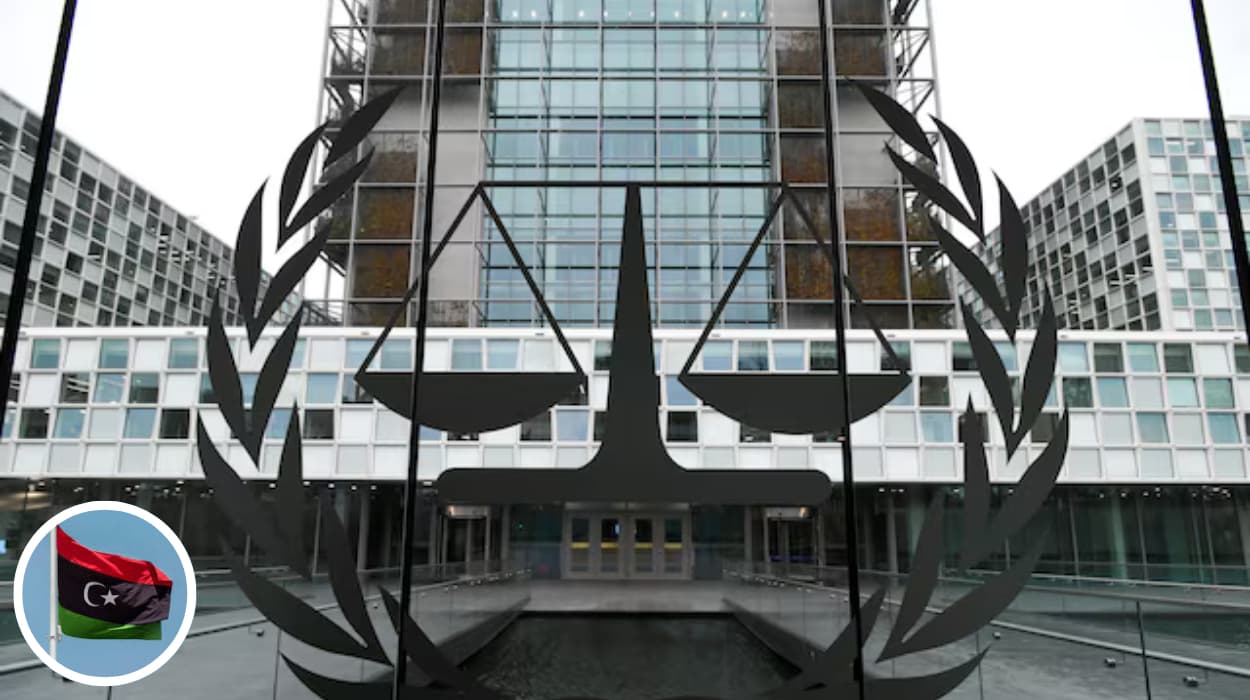Key Points:
- The International Criminal Court (ICC) has issued an arrest warrant for a suspect linked to war crimes in Libya.
- The warrant concerns allegations of severe violations during Libya’s ongoing conflict.
- The ICC's action underscores its continuing efforts to bring accountability to war crimes committed in Libya.
- The identity and specific charges against the suspect have been officially disclosed by the ICC.
- This development marks a significant step in international justice regarding war crimes in North Africa.
- The ICC has reiterated its commitment to investigating and prosecuting human rights abuses in Libya.
- The warrant is expected to have implications for Libyan domestic politics and international relations.
The International Criminal Court’s recent issuance of an arrest warrant for a suspect accused of war crimes in Libya marks a critical advancement in the pursuit of justice amid the country’s ongoing conflict. This action underscores the ICC’s commitment to holding individuals accountable for serious violations of international law, including potential crimes against humanity. While the specific identity and charges against the suspect have been formally disclosed, the broader implications of this warrant extend beyond legal proceedings—impacting Libya’s political dynamics, international relations, and the hopes of victims seeking accountability. The move reflects sustained global efforts to address impunity in Libya, despite the challenges posed by instability and limited cooperation within the region.
What is the ICC's arrest warrant about?
The International Criminal Court (ICC) recently issued an arrest warrant for a suspect implicated in war crimes committed in Libya. This measure is part of the ICC's ongoing mission to hold accountable individuals responsible for grave violations of international law amid Libya's prolonged conflict. The ICC alleges that the suspect has been involved in actions violating wartime conduct, potentially including crimes against humanity or war crimes. The precise charges and identity of the suspect were formally presented by ICC officials, marking a pivotal move in the pursuit of justice for victims of Libya’s civil war.
As reported by international legal correspondents monitoring the ICC, this warrant is based on thorough investigations by the court, reflecting sustained international pressure to address impunity in the region.
Why has the ICC targeted this particular individual?
According to reports from multiple international news outlets covering justice and human rights issues, the suspect is believed to have played a significant role in orchestrating or facilitating unlawful acts during armed confrontations in Libya. These may encompass acts such as indiscriminate attacks on civilians, torture, or other violations prohibited under international humanitarian law. The ICC's mandate involves prosecuting those most responsible for war crimes, and this suspect has emerged from evidence gathered during investigations as a central figure.
Expert analysts cited by media emphasize that the ICC’s decision sends a strong message to other potential perpetrators in conflict zones that war crimes will not go unpunished.
What impact will the ICC’s warrant have on Libya and international relations?
The issuance of an arrest warrant by the ICC is expected to resonate strongly within Libya’s political and security landscape. It could influence ongoing peace talks and security arrangements, especially if the suspect holds or held a position of influence. Furthermore, the warrant could complicate Libya’s relations with countries hosting or supporting the suspect, as cooperation with the ICC is essential for the warrant's enforcement.
Observers from international law and diplomatic circles have noted that the arrest warrant may either encourage cooperation with international justice mechanisms or exacerbate tensions among factions in Libya depending on the local response. Such developments will be closely watched by global governments and humanitarian organizations.
What has been the ICC’s historical involvement in Libya?
Since the fall of the Gaddafi regime, the ICC has steadily increased its oversight and involvement in Libya. Past interventions have included investigations and prosecutions of crimes committed during and after the 2011 uprising and subsequent conflicts. This latest arrest warrant continues a pattern of the ICC's active role in addressing accountability gaps in Libya.
Legal reporters specializing in international courts have highlighted that the ICC faces challenges in Libya due to instability and limited cooperation from some parties in the country. Nonetheless, the ICC remains determined to pursue justice where possible.
How have Libyan and international entities reacted to the warrant?
Reactions from Libyan officials, international governments, and policy experts vary. Internationally, human rights organizations have welcomed the ICC’s move as a crucial step toward justice and deterrence of future abuses. Within Libya, responses may range from support by factions committed to peace and rule of law to opposition or denial from those aligned with the suspect.
Analysts at major media outlets covering North African affairs have indicated that the ICC's warrant could spur debates on national sovereignty and the role of international interventions in resolving Libya’s conflict.
What does this mean for victims of the conflict?
For victims and survivors of Libya’s prolonged conflict, the issuance of an ICC arrest warrant symbolizes hope for acknowledgment, justice, and potential closure. The ICC aims to provide a legal avenue to address grievances and hold perpetrators accountable when national jurisdictions cannot or will not act effectively.
Victim advocates quoted by international humanitarian reporters stress that such legal actions are vital in combating impunity and promoting reconciliation in post-conflict societies.

